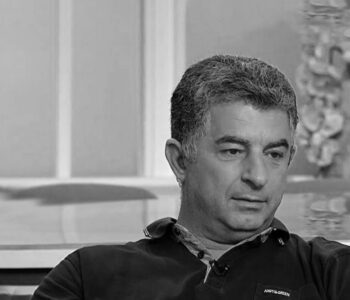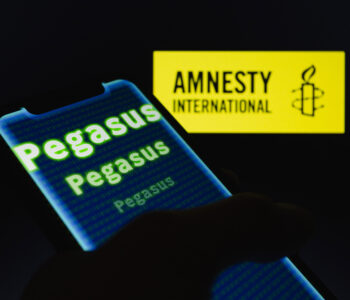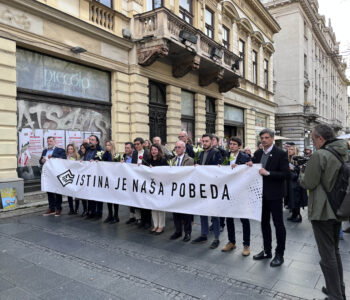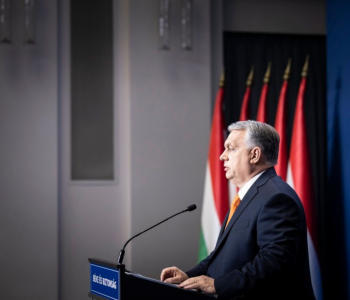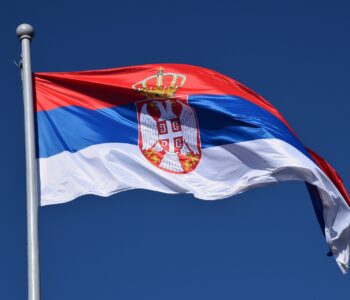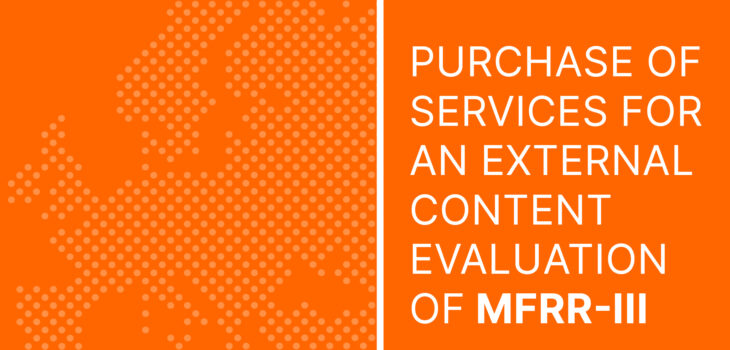
Purchase of services for an external content evaluation of MFRR-III
Location: Europe (flexible)
Deadline for applications: 17 August 2023
The Media Freedom Rapid Response (MFRR) tracks, monitors and reacts to violations of press and media freedom in EU Member States and Candidate Countries. This project provides legal and practical support, public advocacy and information to protect journalists and media workers. The MFRR is organised by an alliance led by the European Centre for Press and Media Freedom (ECPMF) including ARTICLE 19 Europe, the European Federation of Journalists (EFJ), Free Press Unlimited (FPU), International Press Institute (IPI) and CCI/Osservatorio Balcani Caucaso Transeuropa (OBC Transeuropa). The project commenced in 2020 and is co-funded by the European Commission.
With funding from the European Commission, the current MFRR project period started on 4 May 2022 and runs until 31 October 2023.
The final evaluation is scheduled to take place during the last two months of the project period, from September to October, 2023
Background
The programme’s overall objective is to continue the implementation of the previously established Media Freedom Rapid Response mechanism within the European Union and Candidate Countries. The project is following the MFRR pilot project implementation in 2020.
The general objectives and expected results of the programme to be evaluated are:
- Strengthen media freedom and media pluralism to foster open democratic debate.
- Enhance protection and direct support of journalists, media workers and outlets under threat in Europe.
- Rapidly respond to and prevent media freedom violations in Europe by appropriate intervention to mitigate consequences of deterioration of press and media freedom in EU Member States and Candidate Countries.
- Support and expand the media freedom community in Europe; stimulate collaboration, joint initiatives and new alliances amongst European, regional and local stakeholders.
A detailed list of the specific objectives can be provided on request.
The activities conducted under the programme consisted in designing and managing a Europe-wide rapid response mechanism to support media freedom and journalists’ safety. With the following main pillars of the action:
- Monitor the state of media freedom in the EU Member States and candidate countries.
- Support to journalists and other media professionals in need.
- Advocacy and awareness-raising in the field of media freedom and safety of journalists.
- Awareness-raising campaigns.
- Ensure communication and dissemination activities.
- Monitoring and evaluating the action.
Objectives of the evaluation
An indicative list of the areas of assessment is provided below. The evaluation questions can be further refined by the provider carrying out the evaluation.
Relevance: Assess whether the funds from the European Commission contributed to the development and implementation of the Media Freedom Rapid Response across Europe.
- To what extent did MFRR-III achieve its overall objectives?
- To what extent did MFRR-III contribute to strengthening media freedom in Europe?
- To what extent did MFRR-III achieve the specific objectives?
Effectiveness: Assess whether the grant was implemented effectively and efficiently by the partners in the consortium to fulfil the planned deliverables, especially amid upheaval caused by the ongoing COVID-19 crisis.
- To what extent were the planned activities carried out and were these delivered within the planned budget and timetable?
- Were risks properly identified and managed?
- How effective was the programme’s design in the success of the project? (Elements of the programme’s design include the roles and responsibilities of consortium partners)
Impact: Assess the changes resulting from the programme (positive/negative, direct/indirect, intended/unintended).
- What measurable impact, if any, did MFRR-III-supported investigations have on policy, public discourse or any specific outcomes?
- How did MFRR-III help to safeguard Media Freedom across the EU?
- To what extent did MFRR-III help build a clear picture of threats against Media Freedom in Europe?
- To what extent has MFRR-III supported media workers under threat in the EU?
Sustainability and replicability: Assess whether the impacts achieved through the programme are likely to be sustained after the current funding period and if they are replicable in other regions.
- What are the prospects of the programme being sustained?
- To what extent has government (EC) grants and private philanthropy been successful in contributing to the production of independent journalism in the public interest?
- To what extent are the outputs of the project (i.e., supported investigations) likely to continue fostering debate across borders and result in progressive change?
Learning Review: Identify and expand upon lessons learned that have not been drawn in the sections above.
- This section will cover any key areas that have not featured in the sections above and that may surface throughout the evaluation process.
Methodology and deliverables
The selected provider will:
- Review all grant-related documents;
- Assess the impact of the different activities implemented throughout the project implementation of MFRR-III;
- Interview staff from the consortium organisations involved in the project, including project managers and senior management;
- Interview a cross-section of MFRR-III beneficiaries;
- Other relevant activities.
All interviews with beneficiaries will remain confidential and anonymised. During all contacts with stakeholders, the independent evaluation provider will clearly identify themselves as independent consultants and not as an official representative of the consortium behind MFRR-III.
The consultant will provide one draft report (approximately 30 pages long) covering all areas noted in Section 2. It shall be submitted to ECPMF by 25 October 2023. The final report – which incorporates or has responded to any internal feedback provided on the draft version – should be submitted to ECPMF by 20 November 2023.
Eligibility criteria
The selected provider will need relevant subject knowledge and experience conducting journalism-related evaluations.
The independent evaluation provider must be strictly neutral, and they will not have had any involvement in the project prior to this activity, so as to avoid any potential conflict of interests.
Award criteria
Quality of the offer (60%), including:
- Methodology proposed;
- Previous experience in evaluating journalism-related projects/programmes;
- Technical competence and experience in conducting evaluation from a distance/by video conference.
Financial offer (40%).
Eligible tenderers will be invited for an interview to discuss their credentials and proposed plan. All tenderers will be informed about the outcome of their submission by email.
Applications
Interested parties must provide a short proposal outlining their approach (two pages maximum). This should be accompanied by:
- CV(s) of staff who will be involved in carrying out the evaluation;
- A proposed methodology for carrying out the monitoring and evaluation;
- Ideally, one example of an evaluation report recently completed in English.
Tenders shall be submitted by email only (with attachments) to the email address application@ecpmf.eu with the reference “MFRR-III 2022/23 evaluation”. Deadline for submission: 17 August 2023.
Interviews are tentatively scheduled to take place between 18-22 August and these will be conducted remotely.
Other considerations
The assignment shall be conducted remotely.
The maximum amount available for the evaluation of the project, covering all the deliverables to be achieved by the selected tenderer as listed above, is 15,000 Euros (incl. VAT). The allocated budget includes consultancy fees, and travel and subsistence if relevant, and translation costs, if any.

